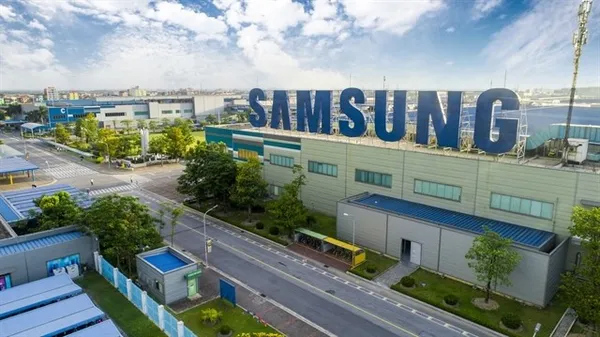 Economy
Economy

 |
| Thảo Nguyễn, CEO of INMERGERS. — VNS Photo |
As M&A activity rises in Việt Nam, fuelled by global economic integration and increased foreign investor interest, creating opportunities for domestic businesses is essential, providing M&A information plays a crucial role, acting as a bridge between local companies and international investors.
Thảo Nguyễn, a key M&A expert at the Investment Promotion Connection Department of the Việt Nam M&A Community, and CEO of INMERGERS, a M&A consulting firm, connecting foreign investors with Vietnamese businesses, shared with the Vietnam News Agency strategies for Vietnamese businesses pursuing M&A, including timing, business valuations, and challenges in the due diligence process.
What is your assessment of the M&A market situation in Việt Nam over the past year?
The M&A market in Việt Nam is experiencing strong growth, especially as the country seeks to attract foreign investment to boost economic development. On average, among the 100 Japanese companies that I work with regarding investing in Việt Nam, 60 per cent are interested in direct foreign investment (FDI), while 40 per cent prefer to invest through M&A.
Although M&A has become an important channel, the focus primarily remains on large enterprises. Small- and medium-sized enterprises (SMEs) have not received much attention from investors, indicating that the potential for market growth is still significant if there is a shift in investment strategies.
According to statistics from INMERGERS, 83 per cent of investors are interested in acquiring businesses, while only 17 per cent focus on M&A in the real estate sector. This highlights a clear preference among investors for manufacturing and service companies, where they can leverage greater added value.
Conversely, among businesses looking to sell, 39 per cent prefer M&A of companies, while 61 per cent are targeting M&A in real estate. This disparity not only confirms that the demand for corporate M&A significantly exceeds the supply but also reflects a trend among companies seeking strategic collaboration opportunities to enhance value and expand their market reach.
We also observe that, while the M&A market in Việt Nam is on a strong upward trajectory, many businesses have yet to fully recognise the benefits of collaborating with foreign investors. This presents numerous opportunities for companies in the connection and advisory sectors to help both parties find optimal solutions for successful M&A transactions.
Overall, the Vietnamese M&A market is witnessing positive transformations, with significant potential for both investors and enterprises aiming to scale up and enhance their competitive capabilities.
After more than a decade working in financial investment consulting, M&A, and legal advisory for hundreds of domestic and international companies, I recognised a pressing need to connect FDI enterprises with Vietnamese businesses. Although the M&A market is expanding, transactions mostly occur through traditional methods, leading to significant time and cost inefficiencies. Furthermore, many companies are unaware of strategic M&A solutions, perpetuating misconceptions that M&A only occurs when a business is on the verge of bankruptcy.
INMERGERS was established in March 2020 as an online platform designed to help Vietnamese businesses easily find and connect with foreign investors. Similar to an "e-commerce platform", INMERGERS specialises in facilitating mergers and acquisitions rather than the sale of ordinary goods. Our goal is to enable Vietnamese companies to access foreign investment quickly, efficiently, and transparently, thereby enhancing the position of Vietnamse businesses in the international market.
Can you tell us which foreign markets have shown the most interest in this area recently?
It's Japan. Japanese investors favour companies capable of producing high-quality goods, particularly those with export potential. They also prioritise businesses with strong distribution systems and stable domestic market shares.
In terms of revenue criteria, Japanese investors are looking for companies with a minimum annual revenue of around VNĐ50 billion (roughly US$2 million), low debt levels, and sustainable growth potential. Notably, Japanese investors place great importance on human factors, so an open mindset and a willingness to collaborate from company leaders are essential to attract their interest.
In your opinion, when is the most appropriate time for a company to consider implementing an M&A strategy?
The best time to undertake M&A is when a company is experiencing stable growth and strong profits. At this stage, the company is in a strong position to seek suitable partners, facilitating breakthrough growth.
Waiting until financial difficulties arise can put a company in a reactive position, forcing it to accept unfavorable terms and risking a loss of control over the business. Furthermore, a decline in company value makes it challenging to negotiate a good price, which could result in a sale that is below its actual worth.
Companies should proactively pursue M&A when they are performing well to optimise value and maintain control.
Therefore, there is a significant need for services that support domestic companies in comprehensive business valuation and provide full M&A consulting, with an aim to enhance business value and achieve a minimum 20 per cent growth within six months. This should also include refining financial and legal systems to be ready for successful and effective investment attraction.
What should a company do before pursuing M&A to optimise its value and attractiveness to investors?
Before engaging in the M&A process, optimising the company’s value is crucial. Companies need to find solutions to optimise all existing resources, including personnel, operational processes and management systems. Reviewing and optimszing the efficiency of all resources helps the company maximise its value, minimise costs and enhance profitability.
The next step is to conduct a comprehensive business valuation. Understanding the actual value of the company, along with its future growth potential, will help business owners feel more confident during negotiations. In addition to important financial factors such as financial statements, cash flow and profitability ratios, it is also essential to evaluate non-financial factors such as brand reputation, customer base and competitive position. These factors enhance the attractiveness of the business to investors.
Furthermore, the company needs to improve its financial and legal systems. One common issue among domestic businesses is the lack of clear separation between personal and business finances. This situation poses several risks, making it difficult to control costs and leading to imbalances in the company’s financial structure.
To address this issue, businesses should quickly establish a roadmap to review and improve their financial "health", thereby building initial trust with potential investors. At the same time, enhancing the legal framework to ensure compliance and protect the rights of all parties will help the company mitigate legal risks and avoid gaps during the M&A negotiation process.
Additionally, choosing the right timing and the right partner is crucial to achieving the greatest synergies.
When a company is experiencing strong growth, that is the ideal time to pursue M&A. The right investment partner should have strong financial capabilities, industry experience and a growth strategy that aligns with the company's direction, while also being willing to share long-term goals and values, thus fostering a sustainable and effective partnership.
What challenges do you typically face when consulting on M&A for businesses, and what advice would you offer to companies?
During M&A consulting, I have noticed that many business owners mistakenly believe they should only seek investors when their company is facing financial difficulties or is at risk of bankruptcy. They fail to realise that the company's value can be significantly higher if it is appraised while operating stably or even during a strong growth phase. When a business is in a good position, investors can clearly see its long-term growth potential and are willing to pay a higher price.
Additionally, a major challenge is that some business owners are not willing to fully share their actual financial situation and internal management issues. This makes it difficult to accurately reflect the company's status. During the M&A due diligence process, investors will send a team of experts to assess potential legal, financial and technical risks, thereby determining their impact on the transfer value.
Transparent cooperation from the business, especially in providing complete financial documents and clear explanations of data during the due diligence process, is crucial for a smooth experience. If the data is inaccurate and lacks reasonable explanations, the business will face disadvantages in negotiations, potentially disrupting or even leading to failure of the M&A process.
Many businesses have also unrealistic expectations regarding their company’s value, even though their current business situation is no longer favourable. Declining revenues, increasing debt and diminishing profitability mean that the actual value of the business no longer accurately reflects its situation.
From the perspective of INMERGERS, a company's value should be assessed based on actual cash flows and internal factors such as revenue. Holding onto unrealistic expectations will make it very difficult to find investment partners.
Another significant challenge is changing the mindset of business owners, helping them understand that M&A is not merely a financial solution, but also an opportunity for collaboration to leverage non-financial synergies.
In reality, M&A can bring numerous advantages, from market expansion and increased production capacity to improved operational processes and enhanced brand value. When businesses recognise that M&A is a sustainable growth strategy, they become more proactive and decisive in seeking partners and building long-term, valuable collaborative relationships.
My advice for businesses looking to pursue M&A is to be patient, seize opportunities and consult reputable M&A advisory firms to "get it right from the start" — from selecting investors and preparing documentation to impressing and confidently negotiating with them, thus increasing the likelihood of success. — VNS